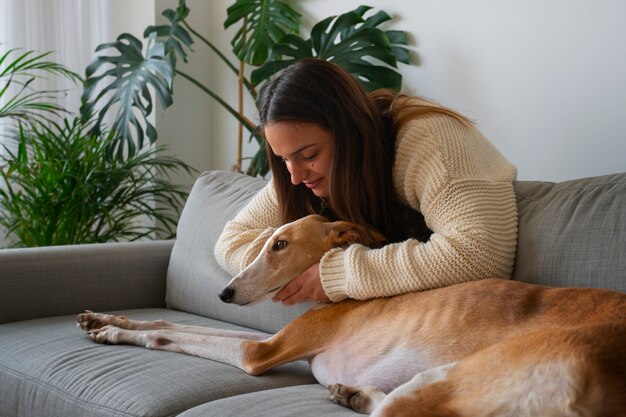

Why I Don’t Judge People for Medicating Dogs with Anxiety
Every so often, you come across an article that truly resonates with you, making you exclaim, “Yes, exactly!” For me, that article was “Rant(ish): Don’t Tell Me I’m Doing Too Much With My IVDD Dog!” It stirred up all my mixed emotions about unsolicited advice, particularly when it comes to medicating dogs with anxiety.
I’m not here to tell you whether or not you should use medication for your dog, nor am I going to recommend specific medications. Instead, I’m sharing why I don’t judge others for their decision to medicate their anxious dogs, based on my own experiences.
Severe Anxiety in Dogs Causes Suffering
My previous dog, Carter, suffered from severe anxiety, which was incredibly challenging to manage. Deciding to medicate him was not a quick or easy decision. We tried everything: behavioral modifications, desensitization, thunder shirts, calming oils, soothing music, and supplements. We attempted to “ride it out,” used distraction techniques, and pretended it wasn’t a big deal. Despite these efforts, none of these methods alleviated his sheer panic and hysteria during fireworks.
His anxiety during fireworks wasn’t normal; it manifested as constant shaking, pacing, whining, drooling, and scratching at the door in a desperate attempt to escape. We tried moving to quieter rooms, but the anxiety followed him everywhere. Watching your dog so out of control with fear is heartbreaking, leaving you feeling helpless.
Such extreme anxiety unquestionably causes pain and suffering.
Sometimes Medication is the Humane Option
Not all dogs experience severe anxiety; like many conditions, it ranges from mild to severe. For dogs with severe anxiety, medication can be the most humane option. Choosing to medicate an anxious dog is challenging and not a decision made lightly. When your dog is suffering, you’ll face difficult choices that only you can make.
I didn’t view anxiety medication as a “quick fix,” nor did I expect it to erase all his fears. Its purpose was to make his anxiety more manageable, not to eliminate it entirely.
While consistent training and exercise may suffice for some dogs, others benefit significantly from the appropriate medication. Always consult with a trainer and a vet to determine if medication is a suitable option for your dog.
Why I Don’t Judge Dog Owners Regarding Medication
After deciding to medicate Carter for his fireworks-related anxiety, I faced criticism and unsolicited advice, which often made me feel much worse. Comments like, “I wouldn’t medicate my dog for that,” implied that I had failed, that I hadn’t tried hard enough to solve the problem, or that I was taking the “easy” way out.
When people shared that their dogs overcame storm fears with amazing oils, I understood their intent to be helpful, but it sometimes made our struggles feel minimized. If an oil could fix it, why was I still having problems?
While I’m glad those solutions worked for their dogs, it doesn’t mean they will work for mine. Giving advice isn’t inherently bad, but it can be sensitive when it comes to pet treatments. Discussions about our pets’ well-being are deeply personal, and it’s easy to take offense.
Understanding this, I remain open-minded and supportive of others’ decisions to medicate their anxious dogs, knowing it can be a compassionate and necessary choice.





